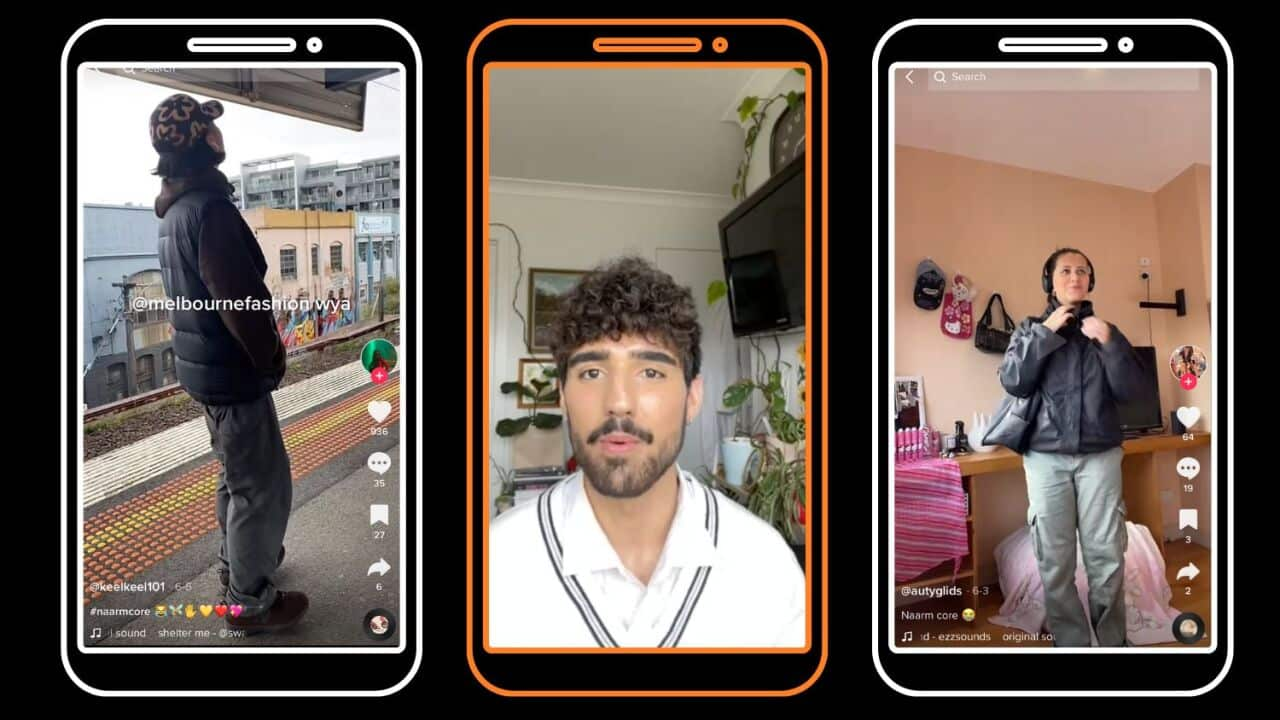Key Points
- The singer has faced accusations of cultural appropriation for projects drawing from Japan's Harajuku subculture.
- In a new interview with Allure magazine, Stefani repeatedly claimed she is Japanese and defended her Harajuku era.
- She is said to be born to an Italian-American father and an Irish-American mother.
Sitting down with a first-generation Filipina American reporter to talk about her latest beauty venture, Gwen Stefani has repeatedly claimed she is Japanese.
Stefani, best known for her singing career, is said to be born to an Italian-American father and an Irish-American mother.
In recent years, she has faced accusations of cultural appropriation for some of her projects, including an album and fragrance line which took inspiration from Japan's Harajuku subculture.

Gwen Stefani and her "Harajuku girls" during a promotion event in Hollywood in 2005. Source: Getty / KMazur/WireImage
In an interview with Allure magazine's Jesa Marie Calaor about the launch of her new vegan beauty line, Stefani was asked what she had learned about her Harajuku era.
She responded by saying her father's job at Yamaha meant he had travelled between their home in California and Japan for 18 years.
"That was my Japanese influence and that was a culture that was so rich with tradition, yet so futuristic [with] so much attention to art and detail and discipline and it was fascinating to me," she told Allure.
As an adult, Stefani said she travelled to Harajuku herself.
"I said, 'my God, I'm Japanese and I didn't know it.'"
The artist then repeated the claim, telling Calaor: "I am, you know." Calaor is an Asian woman herself living in the US, and wrote the interview left her "unsettled".
According to Allure, Stefani suggested twice that she was Japanese and once that she was "a little bit of an Orange County girl, a little bit of a Japanese girl, a little bit of an English girl".
A representative for Stefani later said to Allure she had been misunderstood but declined to provide a statement for clarification or agree to a follow-up interview.
Gwen Stefani defends her Harajuku era
In 2004, Stefani released her debut solo album called Love.Angle.Music.Baby. As part of the album promotion, four "Harajuku girls" were enlisted as backup dancers and featured in live performances and music videos.
Years later, caricatured versions of Stefani and her "Harajuku girls" formed the shapes of bottles as part of her fragrance collection "Harajuku Lovers", which was launched in 2008.

Harajuku Lovers Pop Electric Fragrance bottles on display in 2015 in California. Source: Getty / Stefanie Keenan
"If [people are] going to criticise me for being a fan of something beautiful and sharing that, then I just think that doesn't feel right," she said.
"[It] should be okay to be inspired by other cultures because if we're not allowed then that's dividing people, right?"
Stefani went on to say she also identifies with Hispanic and Latinx communities of Anaheim, California, where she grew up.
"Even though I'm an Italian American - Irish or whatever mutt that I am - that's who I became because those were my people, right?" she said.
Cultural appropriation is broadly described as taking place when members of a majority group adopt cultural elements of a minority group in an exploitative, disrespectful or stereotypical way.










